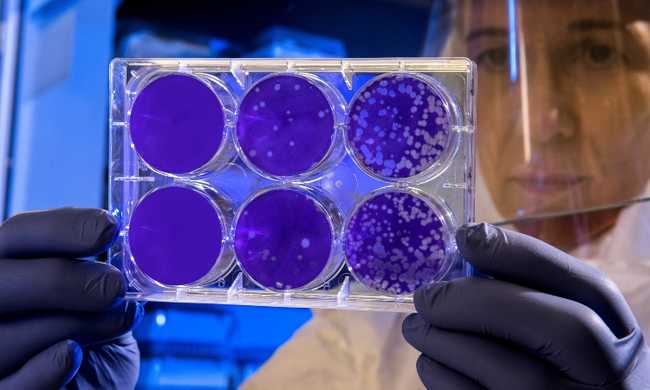What is epigenetics?
Epigenetics is a term that refers to changes in gene activity that do not involve a change in DNA.

National Cancer Institute image on Unsplash
Epigenetics, from the Greek “epi“, meaning above, and genetics, from “gene”, is a term originally coined by biologist Conrad Waddington in 1940 and referred to the relationship between genes and their effects on the observable characteristics of a organism or population.
Later, epigenetics gained an updated definition, referring to changes in the behavior of some genes that are not related to changes in DNA. These changes can generate positive or negative effects for the body.
what is epigenetics

Edited and resized image from Joseluissc3 is available on Wikimedia and licensed under CC-BY 4.0
Epigenetics concerns DNA alterations that do not change its sequence, but affect the activity of one or more genes. Adding chemical compounds to genes, for example, can alter their activity without necessarily promoting changes in the DNA.
According to an article published in the magazine Genetics Home Reference, literally translated, "the epigenome comprises all the chemical compounds that have been added to the totality of a person's DNA (genome) as a way to regulate the activity (expression) of all the genes within the genome". According to the same study, the chemical compounds of the epigenome are not part of the DNA sequence, but are in the DNA or are linked to the DNA.
Epigenetic changes remain as cells divide and, in some cases, can be inherited over generations. This means that epigenetic changes can be transferred from mother cell to daughter cell.
Environmental influences, such as diet or exposure to pollutants, can impact the epigenome and change an individual's phenotype (an observable characteristic of the organism).
Epigenetic changes determine whether genes are active or not and influence the production of proteins in cells, ensuring that only the necessary proteins are produced. Proteins that promote bone growth, for example, are not produced in muscle cells. Patterns of epigenetic modification vary between individuals, in different tissues within an individual, and even in different cells.
Mistakes in the epigenetic process, such as modifying the wrong gene or failing to add a compound to a gene, can lead to abnormal gene activity or inactivity, which can cause genetic disorders. Conditions such as cancer, metabolic disorders and degenerative disorders are related to epigenetic errors.
Scientists continue to explore the relationship between the genome and the chemical compounds that modify it. In particular, they are studying what effect the modifications have on gene function, protein production and human health.
Epigenetics and Diseases
According to an article published in Environmental Health Perspectives, a wide variety of diseases, behaviors and other health indicators are related to epigenetic mechanisms, including cancers of almost all types, cognitive dysfunction and respiratory, cardiovascular, reproductive, autoimmune and neurobehavioral diseases.
The agents involved in the epigenetic process can be heavy metals, pesticides, diesel exhaust, stress, tobacco smoke, polycyclic aromatic hydrocarbons, hormones, radioactivity, viruses, bacteria and nutrients.
- Contamination by heavy metals present in fertilizers
- What are the environmental impacts of heavy metals present in electronics?
As knowledge about epigenetics advances, it is possible that humanity will find cures or friendly forms of treatment for many diseases or disorders for which cure or treatment is still difficult, such as different types of cancer and schizophrenia .
According to biologist Jean-Pierre Issa, in an excerpt from the study mentioned, epigenetics is more important than genetics in understanding the environmental causes of diseases. According to him, cancer, atherosclerosis, Alzheimer's disease and other diseases acquired by environmental factors have greater potential to occur in cases where the epigenome is affected, much more than the genome itself.
Positive epigenetic effects
Changing gene expression is not necessarily bad for the organism. Interestingly, a study published in the journal bioRxiv concluded that coffee and tea can have a positive epigenetic effect on the body. This means that they alter the expression of genes without altering the genetic code of DNA and can have positive effects on how the organism works.
- Eight Incredible Coffee Benefits
- Green tea: benefits and what it is for
The analysis was carried out with 15,800 people of European or African descent and concluded that genes that are influenced by coffee are involved in processes such as better digestion, control of inflammation and protection against harmful chemicals.
The result of the study is promising and indicates that food can be used to obtain benefits in gene expression. But more studies are needed to conclude on the positive and negative effects of coffee on the body with regard to epigenetic alteration.










